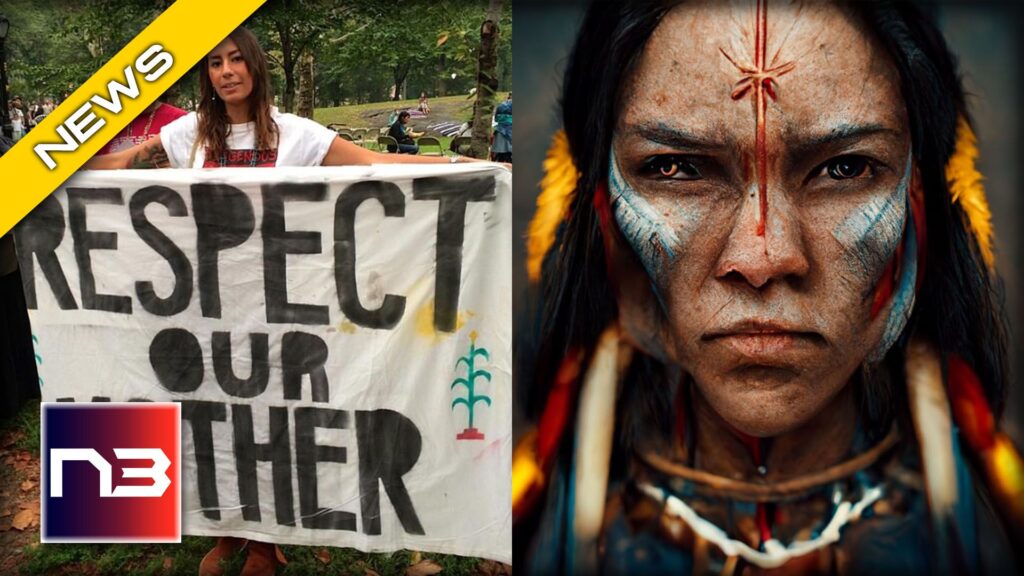A stunning reversal has rocked the academic world as a UC Berkeley professor has admitted to falsely claiming Native American ancestry for her entire life. Elizabeth Hoover, an associate professor in the environmental science and policy management department, has apologized for breaking the trust of the Native communities she lived alongside. Her admission of false identity has been met with shock and disbelief. Hoover has published books and articles about Native American issues and claimed to be of Mohawk and Mi’kmaq descent. The allegations regarding her heritage occurred throughout her career and have caused harm to Native communities.
Elizabeth Hoover, a UC Berkeley associate professor in the environmental science and policy management department, has admitted to falsely claiming Native American ancestry her entire life. This admission of false identity has caused harm to the Native communities she lived alongside, as well as fractured trust and activated historical harms.
Hoover had claimed to be of Mohawk and Mi’kmaq descent and published books and articles about Native American issues.


However, in a letter posted on her personal website, Hoover acknowledged that she had incorrectly identified herself based on incomplete information. Her admission has sparked outrage and a petition for her resignation. The academic community is reeling from the fallout of this shocking revelation.
Growing up, Hoover believed that her great-grandmother was a Mohawk woman, and she was brought to “pow-wows, ceremonies, and food summits” to feel connected to her mother’s family background. However, as an adult and an academic, Hoover admits that she did not do her due diligence to confirm her family stories. In her twenties and thirties, she lived in different Native communities but wrongly felt that her distant connection was enough to claim a Native identity. Her identity guided the types of research and community work she carried out and the communities she sought to be part of. According to Hoover’s post, she began being challenged about her Native American identity when she took her first assistant professor job. She brushed off people’s questions and concerns as “petty jealousy,” and identifying as a Native person gave her access to spaces and resources that she would not have had otherwise.
The accusations regarding her heritage occurred “throughout her career” as a professor at Elizabethtown College, St. Olaf College, and Brown University. Adrienne Keene, an associate professor at Brown University and a Cherokee Nation citizen, used to be friends with Hoover. According to Keene, Hoover’s “story fell apart very quickly, within a few clicks,” of her looking into it.


Hoover’s false claims did not just hurt the Native communities she claimed to be a part of but also the students she taught while she researched her specializations of “Native American food systems, Native American environmental health movements, and Indigenous uses of fire.” Hoover acknowledged that her apology was long overdue and wouldn’t accomplish much, but she was adamant that it can be a stepping stone for change and help her make amends.
Hoover’s Twitter account, which hasn’t been tweeted from since 2020, features multiple Native American protests the professor was a part of and the many food summits she attended. Before taking part in programs or funding opportunities that were identity-related or geared towards under-represented people, she should have ensured that she was claimed in return by the communities she was claiming.
This is not the first time a high-profile activist has been caught pretending to have Native American ancestry, including Sen. Elizabeth Warren (D-MA), Canadian academic Carrie Bourassa, and actress Sacheen Littlefeather, whose sisters came forward late last year after her death to reveal that she was of Mexican descent. Earlier this year, a “non-binary” founder of an Indigenous artists’ collective was caught faking her Native American identity.
The fallout from Hoover’s admission of false identity is still unfolding, with many questioning the harm it has caused to the Native communities and the academic community. Hoover’s apology is seen by some as too little, too late, and her credibility has been called into question. The UC Berkeley administration has not commented on the situation, and the future of Hoover’s tenure at the university is unclear.
The revelation that Elizabeth Hoover falsely claimed Native American ancestry has rocked the academic community and caused harm to the Native communities she lived alongside. Her admission of false identity has been met with shock and disbelief, and the fallout is still unfolding. Hoover’s apology is seen by some as too little, too late, and her credibility has been called into question. The UC Berkeley administration has not commented on the situation, and the future of Hoover’s tenure at the university is unclear.



